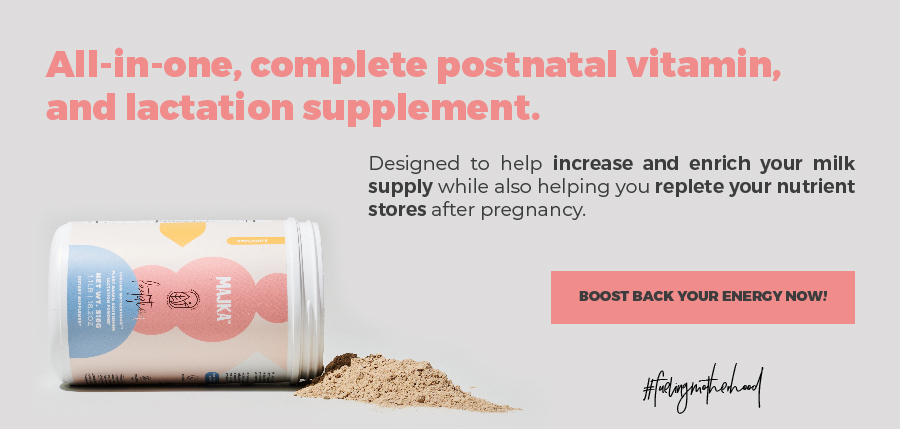
As a new mommy you will find yourself facing different choices regarding your wellbeing and your baby’s, and one of the biggest decisions is to choose between breastfeeding and formula feeding. No matter the side you pick on the breast milk vs formula debate, always remember it does not have to be one or the other, neither all breastmilk or no breast milk. This decision should be the outcome of a personal preference that makes you comfortable and works the best for you and your routine.
Nutritional value of breast milk vs formula has been studied by multiple professionals, and even though a mommy’s supply is considered the most benefical for infants among health experts, the reality is breastfeeding is not plausible for all women, and moms who cannot breastfeed – or decide not to because of their lifestyle or comfort – can turn to baby formula as a healthy alternative to fulfill their kid’s needs, as it provides most of the nutrients they need to grow and thrive.
In order to help you form an opinion on which choice you should take, we have gathered some useful information, weighing the pros and cons of both feeding methods, so you can put them into consideration and choose the best option for you and your baby.
Nutritional profile
When it comes to calorie count and nutritional profile of breast milk and formula, both have very similar characteristics, as the latter’s main goal is to mimic human milk. Both are composed of carbohydrates, proteins, fatty acids, vitamins, minerals and other components a baby needs to grow healthy; formula contains all these foundational nutrients plus some additives and is an effective substitute. Nutrients found in breast milk are better absorbed and used by your baby’s body.
A feature that makes human milk so unique is nutrient adaptation, as its composition is modified over time and adapts to the changing needs your baby has as they grow. Even though it is the most nutritious option, exclusively breastfed children have more chances to develop Vitamin D*, Vitamin K and Iron deficiencies; supplementation during pregnancy and while breastfeeding combined with having a healthy, well balanced diet is a way to prevent this, but it is also important to consider that some baby formulas in the market are fortified with these nutrients, and may include other components in their formulations – like prebiotics and probiotics – to support your kid’s development.
*Talk to a pediatrician about Vitamin D supplementation for infants.
Immune system benefits for your baby
Some of the most important features that make breast milk stand out over baby formula, are the developmental and immunological properties that artificial compounds fail to replicate. Among the elements that can be found in mommy’s milk that make it so special are:
- Antibodies
- Hormones
- Bioactive molecules-including macrophages and stem cells
The combination of these help your baby build strong defenses to fight viruses, bacteria and other pathogens. Even from the first weeks of life, breastfeeding becomes an important factor to lower the chances of developing respiratory and gastrointestinal infections, due to the composition of colostrum.
Among other potential benefits a baby can get from breastfeeding is the boosted development of some neural functions-including sight and protection from chronic diseases that could develop during childhood.
Benefits for your health
One of the most important aspects to consider giving breast milk to your baby, if possible, is to lower your levels of estrogen. Feeding formula instead of breastfeeding exposes moms to higher levels of this hormone, leading to the possibility of developing breast, ovarian and uterine cancer. Furthermore, breastfeeding helps to lower the risk of developing osteoporosis as well in the post-menopausal years.
A big advantage that formula feeding offers is the possibility of more time spaced out between feedings since it takes about twice the time to digest and that brings the opportunity to rest, relax or start an exercise pattern.
Possible challenges
One of the most common problems babies who depend on breastfeeding have, is that they may not latch accurately onto your breast, leading them to drink below the amount of milk they may need to feel full which could be easily fixed with proper positioning and latching techniques.
In addition to the lack of properties to boost your baby’s immune system, keep in mind that inadvertently overfeeding* your child when bottle-feeding them with formula can happen easily. Since formula is digested slower than breast milk, your kid could struggle a little bit with constipation or colic. Also, as formula production depends on a proper supply chain, in 2022 companies have faced problems in the United States that have led to formula shortages.
*Talk to your pediatrician about formula amounts per age.
Making a choice
Feeding moments are special and intimate opportunities for you and your baby to make your bond stronger, whether you choose to breastfeed or to formula feed them, all loving mommies like you deserve to take the choice that fits them best.
We hope these insights have helped you clarify some doubts on where you stand on breast milk vs formula discussion. We strongly recommend asking a lactation consultant for their advice or seeking the opinion of your family doctor if you are still undecided, and we suggest you follow all of our content at Breastfeeding 101 to be informed on more topics involving lactation.
If you want to deepen even more into the breast milk vs formula topic, consult some of the resources that made this article possible:
Breast Milk Is Best | Johns Hopkins
Breastfeeding vs. Formula Feeding | Nemours
Breast-feeding vs. formula-feeding: What’s best? | Mayo Clinic
Breastfeeding vs. formula feeding | Medline Plus
Review of Infant Feeding: Key Features of Breast Milk and Infant Formula | NCBI
Annie Rueb






